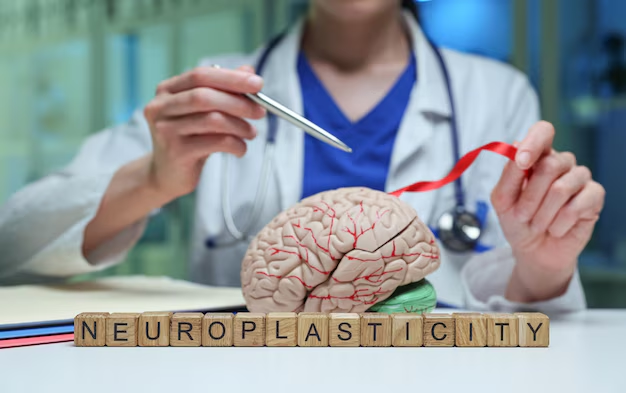Understanding Parkinson's: How It Affects the Brain and What You Need to Know
Parkinson's disease is a term that invokes complexity, mystery, and a sense of a looming challenge. For those who live with it or know someone who does, understanding how this neurological disorder impacts the brain is vital. In this article, we delve into which part of the brain Parkinson's disease affects, while also exploring relevant nuances to offer a comprehensive view.
The Basics: What is Parkinson's Disease?
Parkinson's disease is a progressive neurodegenerative disorder that primarily impacts movement. It's characterized by symptoms such as tremors, stiffness, slowness of movement, and balance difficulties. But beyond what meets the eye are the intricate changes happening within the brain, particularly in a specific region responsible for movement regulation.
The Brain's Substantia Nigra: The Epicenter of Parkinson's
When we talk about Parkinson's disease, the most affected area of the brain is the substantia nigra, a small region within the midbrain. This area plays a crucial role in movement control.
Role of the Substantia Nigra
- Dopamine Production: The substantia nigra is vital because it produces dopamine, a neurotransmitter critical for transmitting messages to the part of the brain that coordinates smooth and balanced muscle movements.
- Cell Degeneration: In Parkinson's, nerve cells in this area degenerate and die, leading to decreased dopamine levels, which contribute significantly to the disorder's motor symptoms.
How Dopamine Deficiency Impacts Functionality
Dopamine facilitates communication between the substantia nigra and other areas of the basal ganglia, a group of nuclei in the brain involved in motor control. A deficiency impacts this communication, leading to impaired movement.
Symptoms Related to Dopamine Deficiency
- Tremors: Often beginning in the hands or fingers.
- Rigidity: Muscle stiffness can occur in any part of the body.
- Bradykinesia: Slowness of movement, making everyday tasks challenging.
- Postural Instability: Impaired balance leading to a stooped posture.
Beyond Movement: Other Brain Areas Affected by Parkinson's
While the substantia nigra is the most impacted, Parkinson's affects other parts of the brain, causing a broader spectrum of symptoms.
Cognitive and Emotional Changes
- Cortex: As the disease progresses, changes in the cortex can lead to cognitive impairments, affecting memory and learning.
- Limbic System: Involvement of this area can cause emotional changes, contributing to depression and anxiety, common in Parkinson’s patients.
Autonomic Nervous System
Parkinson's can also disrupt the autonomic nervous system, affecting non-motor functions such as:
- Blood pressure regulation
- Digestion
- Temperature control
The Underlying Causes: Why Does Parkinson's Occur?
Understanding what triggers the degeneration of cells in the substantia nigra is an ongoing area of research. While the exact cause remains unknown, several factors have been identified:
Genetic Factors
Though most cases of Parkinson's are sporadic, genetic predispositions can increase susceptibility. Mutations in specific genes have been linked to the disease.
Environmental Exposures
- Toxins: Exposure to certain toxins, such as pesticides, may elevate risk.
- Heavy Metals: Accumulation of metals like iron or manganese has also been implicated.
Living with Parkinson’s: Managing the Condition
While Parkinson’s currently has no cure, understanding the brain areas it affects helps in managing the condition effectively.
Medication
Medications aim to replenish dopamine levels or mimic its action. Common options include:
- Levodopa: The most effective treatment for motor symptoms.
- Dopamine Agonists: Stimulate dopamine receptors directly.
Lifestyle Modifications
Certain lifestyle changes can alleviate symptoms and improve quality of life:
- Regular Exercise: Improves muscle strength, balance, and mental health.
- Balanced Diet: A diet rich in antioxidants may support brain health.
Supportive Therapies
- Occupational Therapy: Assists in adapting daily activities.
- Speech Therapy: Addresses speech and swallowing difficulties.
Research and Advancements: Hope on the Horizon
Research into Parkinson’s continues to evolve, exploring new treatments and potential cures.
Innovative Approaches
- Gene Therapy: Investigating ways to correct or replace defective genes.
- Stem Cell Research: Promising advances in regenerating affected neurons.
Technological Interventions
- Deep Brain Stimulation (DBS): A surgical option that involves implanting electrodes to regulate abnormal impulses.
Bringing It All Together: Understanding is Key
Comprehending the impact of Parkinson's on the brain enriches not only our medical knowledge but also empowers those affected by the disease. By knowing what part of the brain Parkinson’s influences, and how it manifests differently from one individual to another, we can approach this condition with greater empathy and proactive management strategies.
Staying informed about advancements and maintaining an active lifestyle are essential steps in navigating the challenges Parkinson's presents. Ultimately, fostering awareness and advocating for continued research will propel us closer to finding more effective treatments, and hopefully, a future cure.
Key Takeaways Summary
- 🧠 Substantia Nigra Impact: Parkinson’s primarily affects this brain region, reducing dopamine production.
- 📉 Dopamine Deficiency: Leads to motor symptoms like tremors and stiffness.
- 🌐 Broader Brain Effects: Impacts cognitive, emotional, and autonomic functions.
- 🔬 Ongoing Research: Genetic and environmental factors are under scrutiny; new therapies offer hope.
- 🏃♂️ Active Management: Medication, lifestyle changes, and supportive therapies play crucial roles in managing the disease.

Related Articles
- Are There Environmental Causes Of Parkinsons
- Can Alcohol Cause Parkinson's
- Can Concussions Cause Parkinson's
- Can Females Get Parkinson Disease
- Can Head Trauma Cause Parkinson's
- Can Parkinson Disease Cause Dizziness
- Can Parkinson's Affect Eyesight
- Can Parkinson's Affect Memory
- Can Parkinson's Affect Speech
- Can Parkinson's Affect Vision
